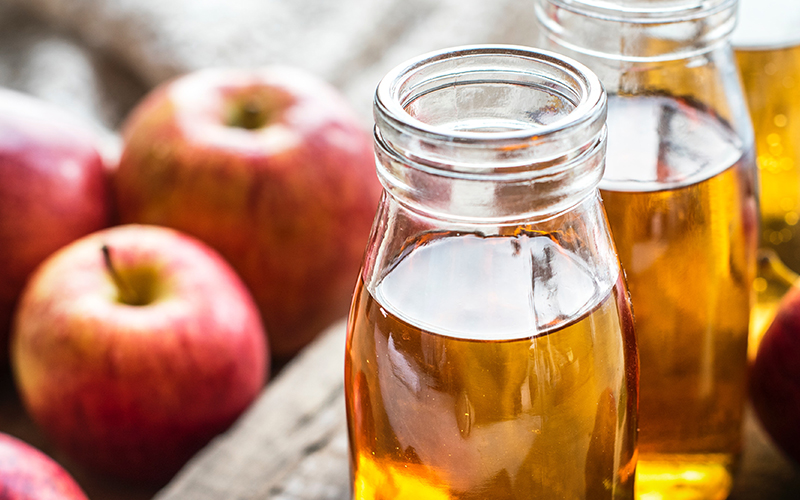Super-charged apple juice that could boost blood flow discovered by scientists in Germany
Researchers at Hochschule Geisenheim University, near Frankfurt, have found a way to maximise polyphenols in apple juice by using a novel squeezing method called a spiral filter press which actively takes out oxygen by vacuum-driven pressing. Moreover, they ensured that …

Scientists in Germany have discovered a new ‘super’ apple juice which has the potential to improve heart health by boosting blood flow1.
Researchers at Hochschule Geisenheim University, near Frankfurt, have found a way to maximise polyphenols in apple juice by using a novel squeezing method called a spiral filter press which actively takes out oxygen by vacuum-driven pressing. Moreover, they ensured that oxygen is excluded from all other processing steps, therefore reducing nutrient deterioration.
The new study, published in Food Research International, found that this new method boosted polyphenol content by four times as much as regular apple juice. Polyphenols are natural plant compounds found in fruit, red wine, and cocoa which are known to have a range of health benefits for the heart and brain.
A 280 ml serving of the new apple juice would be enough to provide 100 % of the ideal intake for a key group of polyphenols, called flavan-3-ols, which help promote a healthy blood flow. The ideal intake of 400 – 600 milligrams per day for cardiovascular health was proposed by an international consortium of scientists in 20222.
The British Heart Foundation estimates that there are 7.6m people living in the UK with heart or circulatory diseases3. Meanwhile, data from the 2021 census show that 32 % of adults suffered from high blood pressure (hypertension) and 3 in 10 of those (29 %) were undiagnosed; equating to approximately 4.2 million adults with undiagnosed hypertension4.
Lead author of the paper, Professor Ralf Schweiggert, commented: “Apple juice is already a source of polyphenol compounds, but you would need to drink several glasses to reach the levels recommended by scientists for heart health effects. The new juicing method that we’ve investigated takes the polyphenol content to a new level by minimising the nutrient losses we typically see during juicing.”
Co-Researcher of the study, Stefan Dussling, said: “Nutrient losses are commonly due to the presence of oxygen which quickly degrades some of the nutrients in apple juice like flavan-3-ols or vitamin C. This would happen when we juice apples at home or buy a ready-made product. We hope that the new juicing method will be used more widely in the future to help people get more of these beneficial natural compounds simply by drinking one glass of juice”.
1Dussling S et al. (2024) Analytical characterization of flavan-3-ol-rich apple juices produced with the innovative spiral filter press technology. Food Research International 180 (2024): 114055.
2Crowe-White K et al. (2022) Flavan-3-ols and Cardiometabolic Health: First Ever Dietary Bioactive Guideline. Adv Nutr 13(6):2070-2083.
3https://www.bhf.org.uk/-/media/files/for-professionals/research/heart-statistics/bhf-cvd-statistics-uk-factsheet.pdf
4https://www.ons.gov.uk/peoplepopulationandcommunity/healthandsocialcare/healthandwellbeing/









